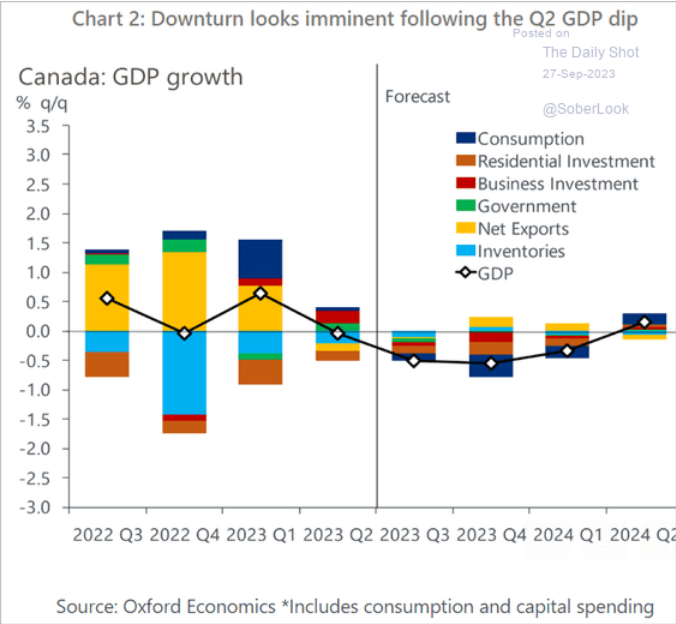September 27, 2023
Cost of living and labour actions
Moves from labour:
- Nigeria "indefinite" strike starts next week. The strike is against the scrapping of a fuel subsidy in the midst of a general cost of living crisis. Nigeria is experiencing inflation of 29.34% in August from 26.98% in July.
- Colombian trade unions are marching in support of the president's policies expanding social programs around work, pensions, and health.
- Unions are united to organize United. One of the last major carriers that is non-union has got three unions organizing its workers around pay increases.
- Qantas workers in Australia look to be going out over pay.
- Finland steel maker unions oppose cuts to production as steel costs bite.
- NLRB in the USA has forced a company to bargain with its union, the first use of the new regulation. Of course, it is a cannabis company.
- South Korea President has railed against "communists" (i.e., trade unions) in an attempt to stop the collapse of his approval rating mostly because of the cost of living. This usually ends with union leaders in jail for organizing workers.
- UAW expand strike action in the USA, with help from the President. And the previous president.
- Stellantis to furlough almost 2,400 workers at Italian Mirafiori plant, unions have called for talks as the economy sputters.
- Apple workers in France have stage strike action on the day of the new iPhone release over pay.
-
Unite the Union has spent about £30mn on strike pay since Sharon Graham took over as general secretary two years ago with a pledge to take more robust industrial action on behalf of workers.
- 950 disputes had covered more than 150,000 members of the union
- compared with the equivalent £735,000 in 2020, £1.4mn in 2019 and £1.1mn in 2018.
Small Modular Reactors, AI, Microsoft, and Apple
Neither small nor particularly modular, SMRs are now the target for large scale private industry for meeting their energy needs.
Microsoft has started hiring for a section of its business to build SMRs to provide "green" power for its data centres. M$ has made commitments on using green energy, but cannot find enough of it to satisfy its new push into AI.
SMRs are cheap enough (because they are economical at smaller sizes) that they open up the possibility of privatization of nuclear power for single company use.
It doesn't take much to see how this might be a problem. Beyond the complete obvious ones is the source material:
SMR requires more highly enriched uranium fuel, called HALEU, than today’s traditional reactors. So far, Russia has been the world’s major supplier of HALEU.
Microsoft already has a deal to buy clean energy credits from Canadian utility Ontario Power Generation, which is on track to be the first utility to deploy an SMR in North America (Verge)
If M$ is thinking about it, you know Apple has already probably built one in secret somewhere disreputable. Or, somewhere most directly impacted with climate change:
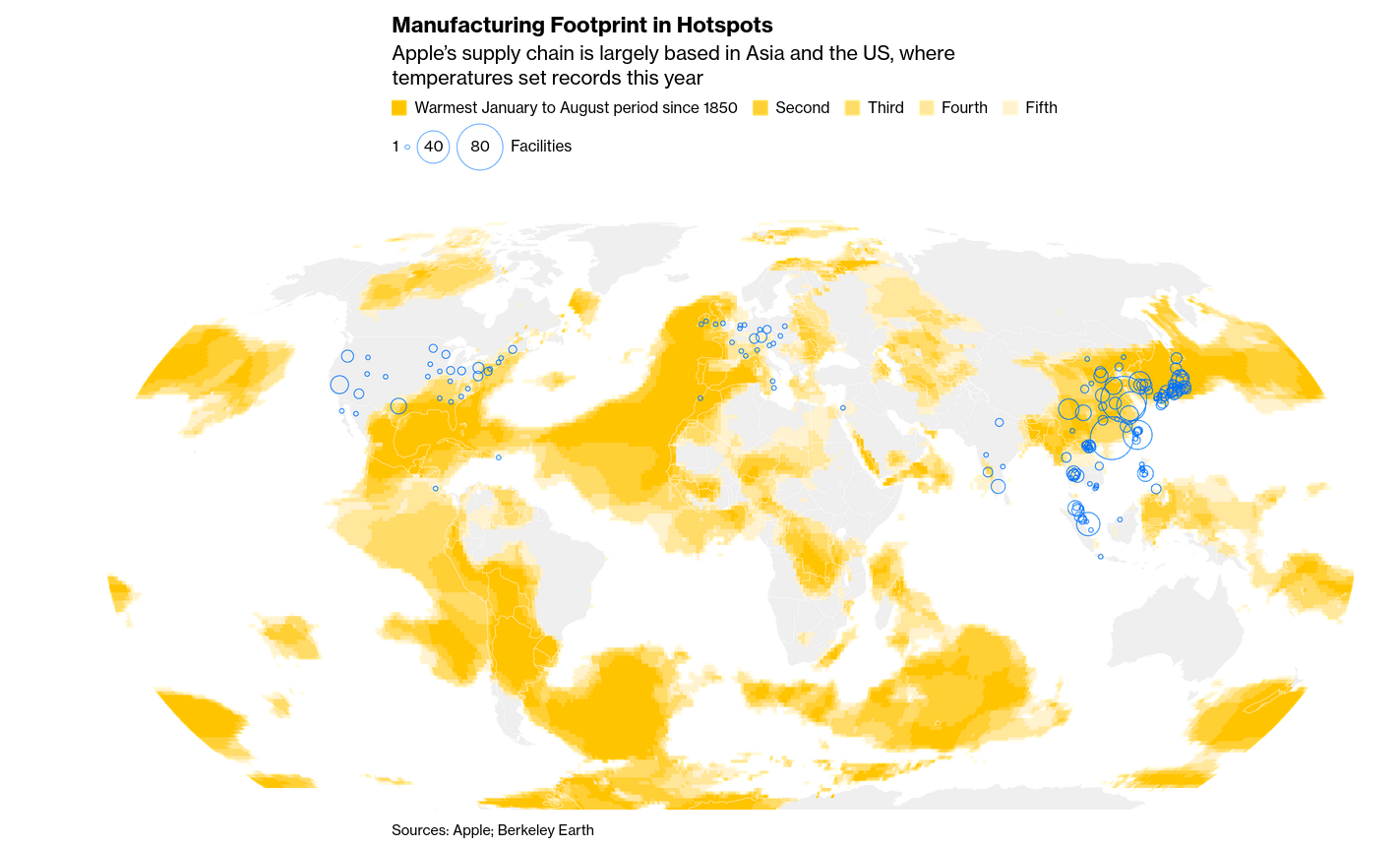
Seriously, though. Apple has purchased more AI (startup) companies than all their competitors without release fanfare about their AI program:
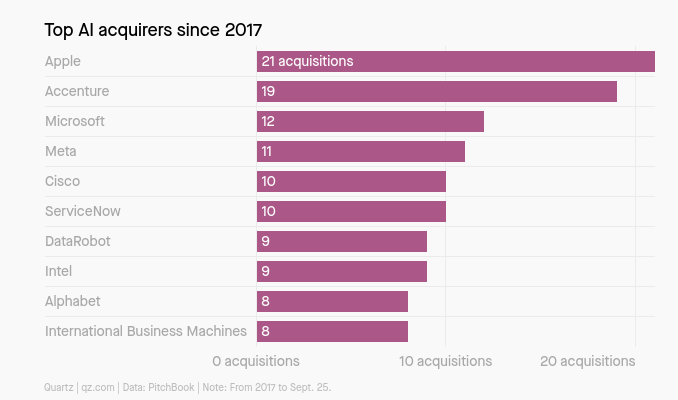
China is taking-over EV production
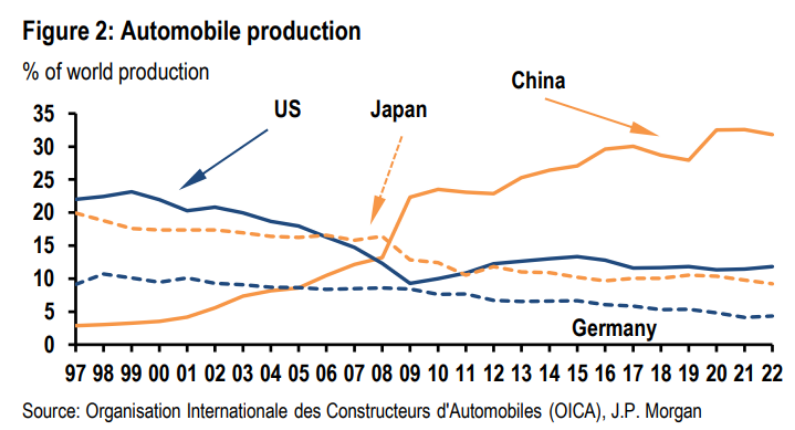
Production without China is difficult
That’s because China dominates four key parts that are essential for a battery to work:
It has about 70% of the world’s production capacity of cathodes (the part of the cell that receives electrons) and more than 80% of anodes (the part that releases electrons on discharge), and well over half of electrolyte and separator output. (BN)n
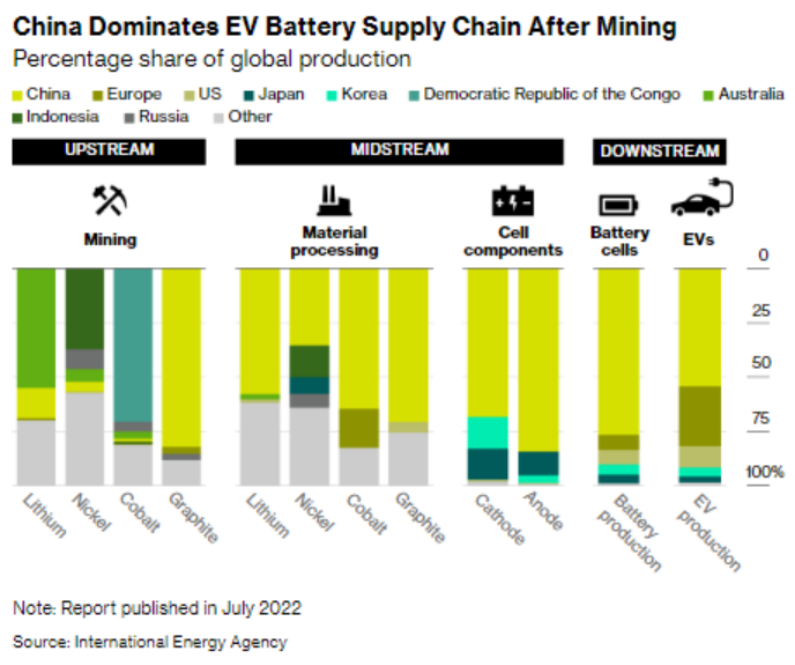
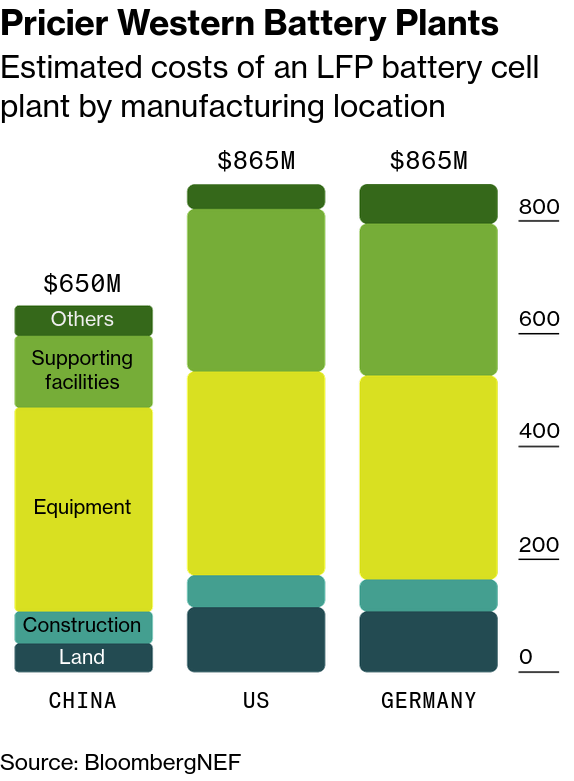
The response from France (and most certainly soon the EU) is that state subsidy restrictions should be eased so money goes to local production.
Canada's economic growth predictions
Two predictions, same data:
Bloomberg sees slow growth, but avoiding a recession:
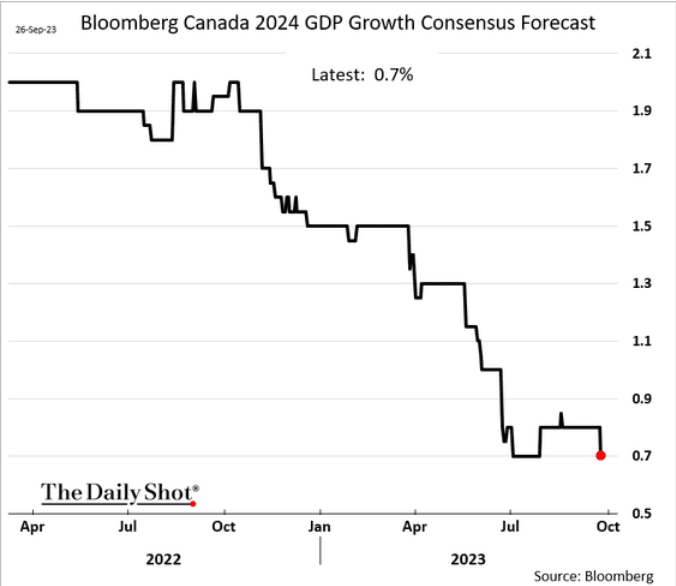
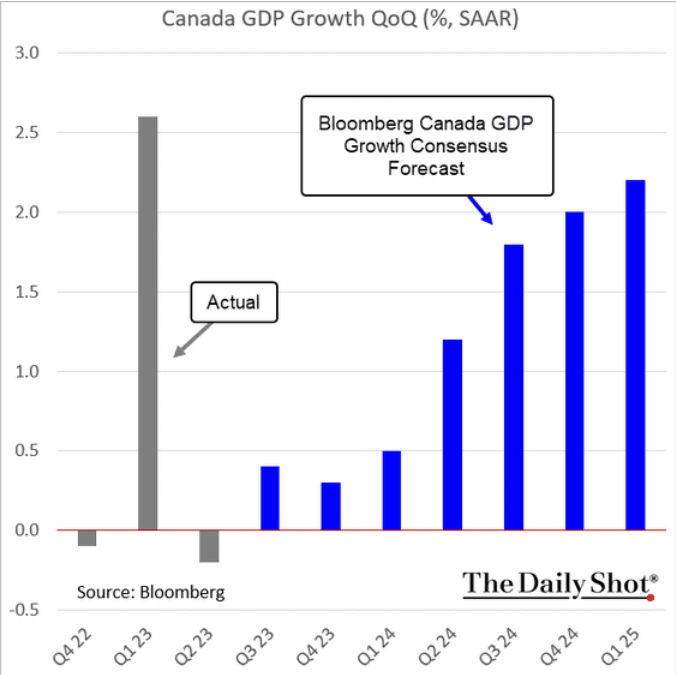
Oxford Economics sees short recession-ish looking GDP numbers with unemployment raising to about 7%.
